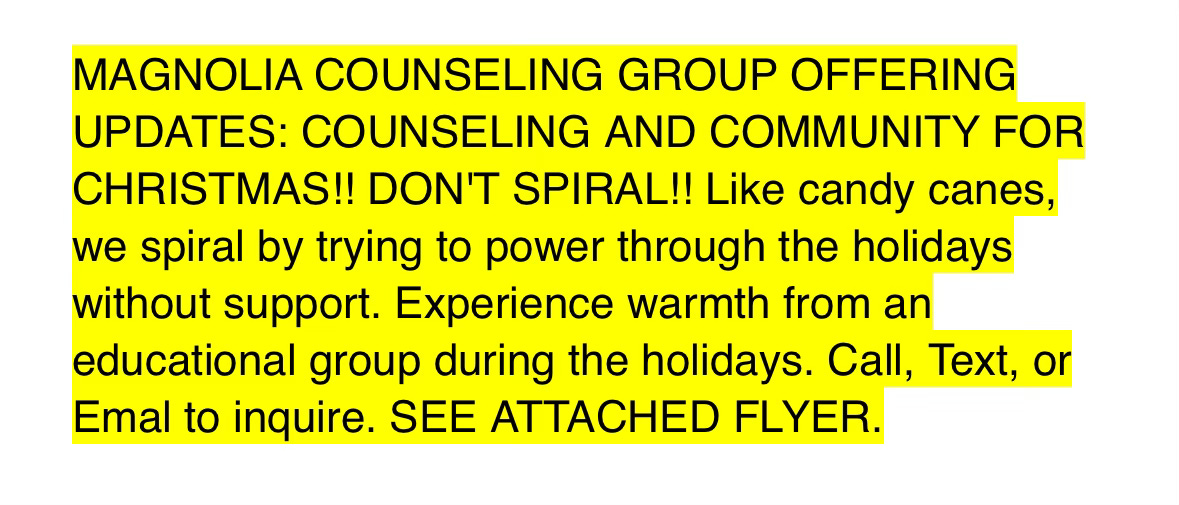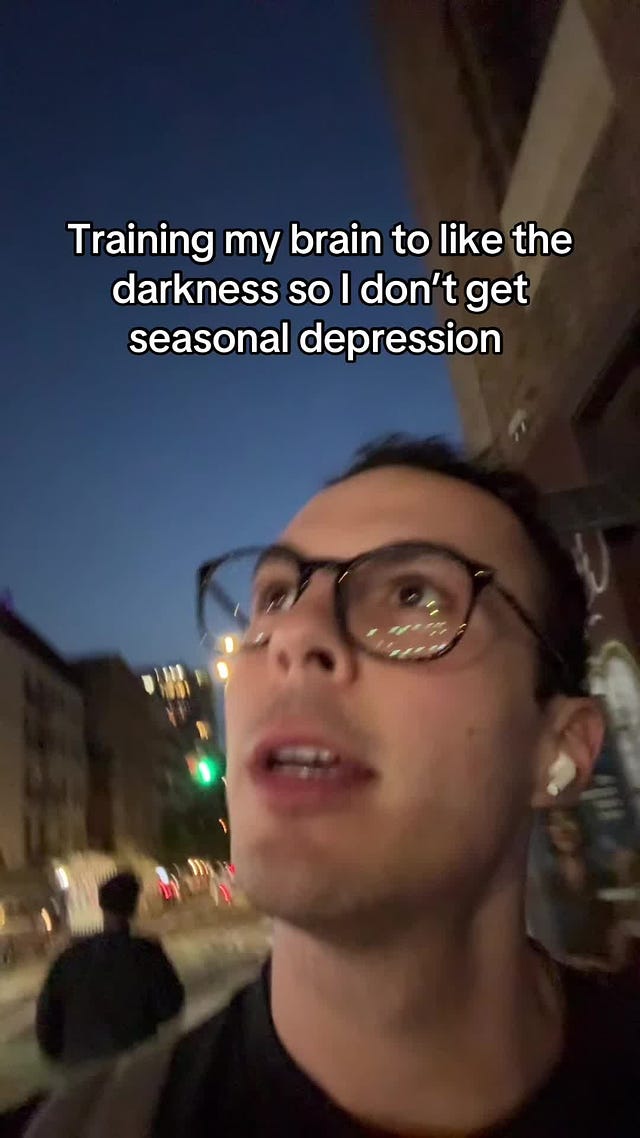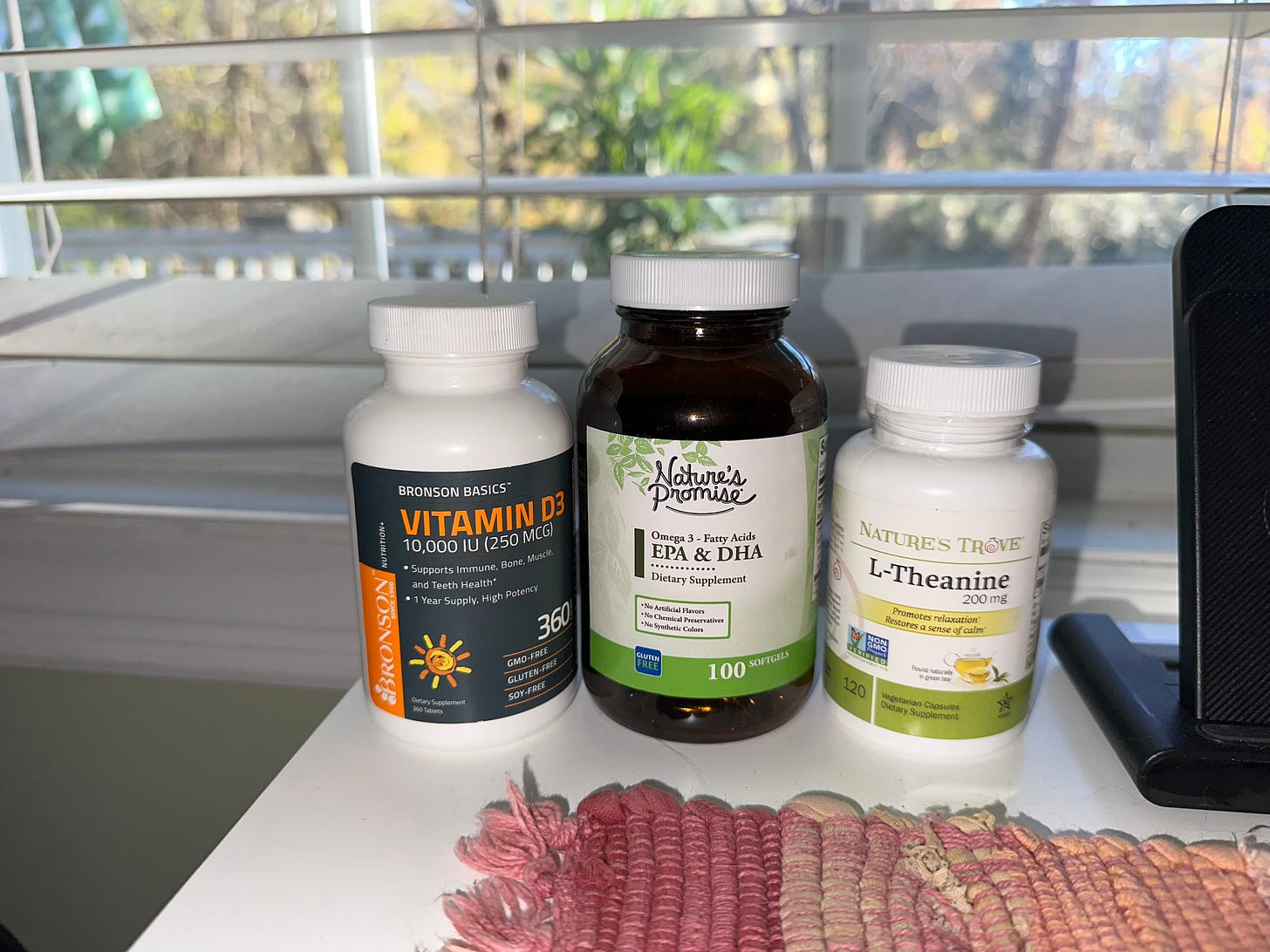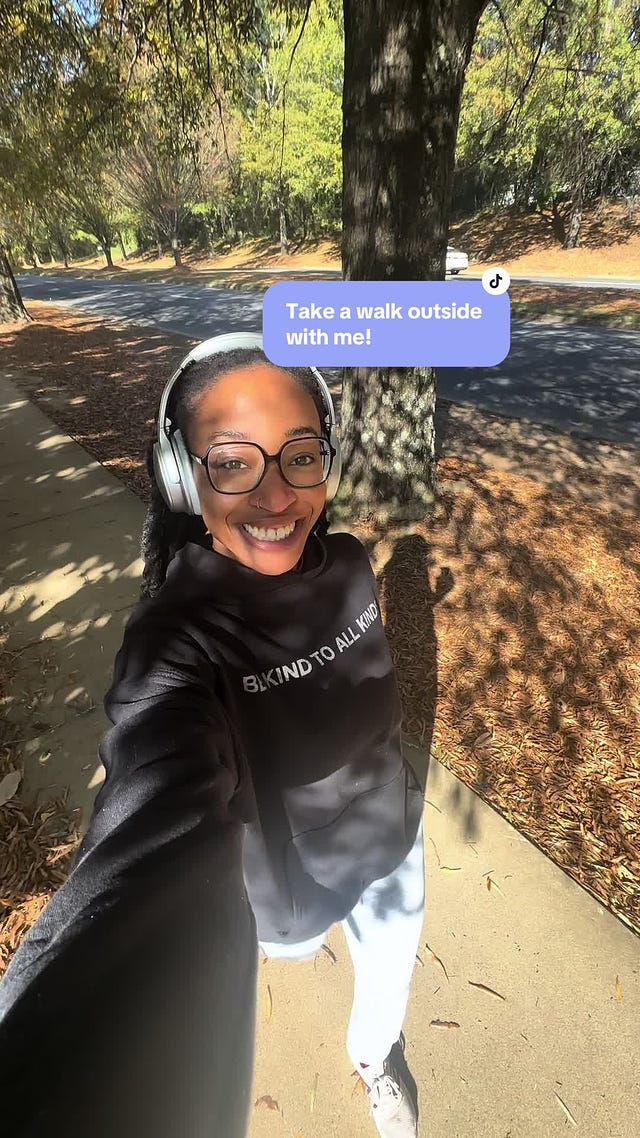As the winter season approaches, so do the complex feelings it tends to bring along with it.
For some, this season means cozy gatherings and joyful traditions, but for many others, it can also spark seasonal depression, loneliness, and the unique stress of navigating family dynamics—or the absence of them.
If you’re already feeling the weight of winter blues creeping in, know that you’re not alone. Let’s dive into a few gentle ways to honor your mental health and find peace, even in the trickiest moments of the season.
Holidays & Community
Enjoying the company of family and friends can feel delightful, but that’s not always the case for everyone.
Whether you feel the pressure to mask your true self around family, worry about "ruining the holidays" or disappointing others, or perhaps the season feels isolating because you don't have anyone to share it with, these feelings are valid.
One thing I really appreciate about the company my therapist works for is that they offer multiple holiday group sessions, from November through January, providing a supportive space for those navigating these tough emotions.
While I’m fortunate to have family to spend time with, I can relate to the feeling that the holidays aren’t always as joyous as they’re made out to be.
When I first started grappling with my mental health issues, the holidays felt like a ton of pressure. I often felt like I ruined Christmas or Thanksgiving by crying for “no reason”, needing space, and feeling overwhelmed.
The pressure doesn’t always come from others—sometimes it’s the unrealistic expectations we set for ourselves that can feel paralyzing. But here’s the truth: You can’t ruin the holidays.
There shouldn’t be expectations around how you act or communicate. Show up how you need to and in the ways you can, whether that be for others or yourself. The only thing you can ruin is your own mental well-being by holding onto those expectations.
Holiday Statistics
38% of people surveyed by the American Psychological Association said the holiday season increased their stress. This can lead to depression, anxiety, substance misuse, and physical illness.
38% of people who experience holiday stress use negative coping mechanisms, such as isolating themselves, overeating, or relying on substances.
Nearly 7 in 10 caregivers say it's stressful to care for a loved one during the holidays.
46% of adults worry about affording holiday gifts, and 40% worry about finding them.
So, take some pressure off yourself and focus on ways to support your mental health.
Look for resources—like these or others—that can help you feel more prepared and connected during the holidays:
Warmlines: These are phone lines staffed by people with lived experience, offering support when you need it most—without the need to travel, join a program, or attend a support group. You can feel confident knowing the person on the other end truly understands what you’re going through, bringing compassion, empathy, and the hope that comes from shared experience.
Salvation Army: Click on the “Get Help” link to locate your closest Salvation Army and view their available services such as providing gifts, clothes, food, shelter, and utility assistance.
Photo by Priscilla Du Preez 🇨🇦 on Unsplash
Here are a few tips I’ve found helpful for managing holiday stress:
Practice gratitude (but not the forced kind). Take some time to journal or even talk out loud about the things you’re grateful for—focusing on what you have instead of what you don’t. This can help ease panic and anxiety.
For example, I remind myself I’m thankful for a body that supports me, a bed to sleep in, food to nourish me, and the beauty of nature around me.
Make time for what matters: Strengthen relationships and engage in traditions that feel good to YOU. This isn’t about meeting expectations but about creating meaningful moments.
Opt out of stressful events: It’s okay to skip gatherings or activities that bring more distress than joy. Protecting your energy is important. Set boundaries—even if it means spending the holidays alone. People will understand, and if they don’t, it might be a sign you’re better off honoring your own needs than theirs.
Counteracting Seasonal Depression
 Tiktok failed to load.
Tiktok failed to load.Enable 3rd party cookies or use another browser
According to the Mayo Clinic, Seasonal affective disorder (SAD) is a type of depression that's related to changes in seasons.
For most, it begins and ends at about the same times every year—symptoms start in the fall and continue into the winter months, often resolving during the spring and summer months. Less often, SAD causes depression in the spring or early summer and resolves during the fall or winter months.
Fall and winter SAD
Symptoms specific to winter-onset SAD, sometimes called winter depression, may include:
Spring and summer SAD
Don’t just brush off that yearly dip in mood as the "winter blues" or a seasonal funk you have to tough out alone. It’s important to take proactive steps to keep your mood and motivation steady all year long.
Personally, I’ve never been built for the cold or the darkness, so this is something I face almost every year—something has to give, right?
While treatments like psychotherapy, light therapy, and medications are common, here are a few of my favorite habits and methods that I either have already implemented or plan to, in order to counteract the effects of seasonal depression.
Supplements: I take Omega-3 Fatty Acids to help balance my mood and boost serotonin. My father taught me how Vitamin D is especially important in the winter since the lack of sunlight can also lower our serotonin levels. L-Theanine helps me stay focused, particularly on days when my ADHD medication isn’t enough to keep me productive. I’ve also seen research suggesting that Folic Acid can support serotonin production, so it’s something I keep in mind for the future.
Nature Therapy: Even when it’s cold outside, connecting with nature is one of my favorite ways to boost my energy and mood in winter—especially if I can catch some sunlight. Studies show that sounds like birdsong, the wind rustling through trees, or water flowing can help reduce stress and anxiety by lowering stress hormones in the body.
If braving the cold isn't your thing, try sitting by your window with a hot cup of tea or cocoa. Even better, bring some plants inside to improve air quality in your space!
Staying Active: Staying active during winter is key for releasing stress and anxiety. If you’re like me and aren’t into the gym, try some at-home Zumba, Pilates, or yoga videos on YouTube, TikTok, or Instagram. Staying active doesn’t have to be intense, and I often find myself more drawn to low-impact activities this time of year.
Rest: The Mayo Clinic recommends keeping a consistent wake-up and bed routine, especially in the fall and winter months. While the lack of sunlight can make us feel sleepier, oversleeping can actually make us feel worse. We’re not bears… hibernating won’t help. Our circadian rhythms get out of sync at this time, disrupting the body’s level of melatonin, so sticking to a regular sleep schedule is key to staying balanced.
If you’re fortunate enough to, take a vacation somewhere sunny and warm, spend time with people who lift you up rather than drain your energy, and if caring for yourself feels like too much, consider talking to a licensed therapist or psychiatrist to see if medication might help.
As my mom says, we all need our "happy pills" sometimes—and she’s right! There’s absolutely no shame in seeking support.
I’m wishing everyone a warm, comforting winter and a joyful holiday season!
Let’s lift each other up and get through this together.
And remember, if you ever need someone to talk to, don’t hesitate to reach out to me or others in the divine community.
We’ve got this💛
Thank you so much for reading The Divine Vitality!
If my stories, readings, and reflections bring value to your journey, inspire, or guide you, I would be truly grateful if you’d consider supporting me. You can become a paid subscriber, book an affordable tarot reading to help me practice and grow, or even offer a small contribution via Venmo or Cash App.
My heart for this blog has always been to share love, light, and healing openly, and I deeply desire that everyone who visits here finds something meaningful. At the same time, your support empowers me to keep creating, sharing, and learning as I pursue this as my career. Every bit of encouragement and support is a blessing, and I’m endlessly grateful to each of you for helping make this journey possible.
Thank you for being here💛











💛💛☀️☀️